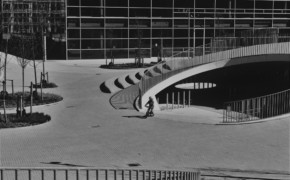Universitetsavisen
Nørregade 10
1165 København K
Tlf: 35 32 28 98 (mon-thurs)
E-mail: uni-avis@adm.ku.dk
In the old days, campus was packed with students. They went on intro camps with no hand sanitizer, and they shared beers and other liquids on packed dance floors. Here is everything that you (perhaps) might never get to experience if you start at the University of Copenhagen this year.

Students and staff no longer allowed to grab a beer on campus or socialise after lectures. New corona measures implemented at the University of Copenhagen until 22 September.

Ever wanted to be a chemist? Chemists can create substances that are wonderful, horrible, or anything in between. They examine compound structures and break or create new bonds

Corona-positive students’ classmates are all sent home to self-isolate and get themselves tested

With this new set of do-it-yourself biology experiments we have you making your own blue cheese, ripening your green tomatoes, and more

Video and audio files from online teaching on Zoom can be exploited by Chinese government agencies, according to the Danish IT trade union PROSA. The University of Copenhagen maintains that it trusts that Zoom complies with legal agreements.

UCPH finally puts the 2016 debacle behind it and bounces back up the Times Higher Education (THE) World University Ranking

A controversial theory claims that women in progressive and wealthy countries like Denmark opt out of IT, mathematics and engineering because they, by nature, are less interested in these subjects than men are. But a Danish professor in the field of cognitive neuroscience says that the research does not support this conclusion.

For the first time ever, new students at the University of Copenhagen were only welcomed digitally - via video. Four students followed the ceremony from their couch out in the suburbs.

Six additional students on the rhetoric programme at the University of Copenhagen are in self-quarantine. Faculty director 'certain' that more corona cases will be forthcoming, but ready to handle them.
